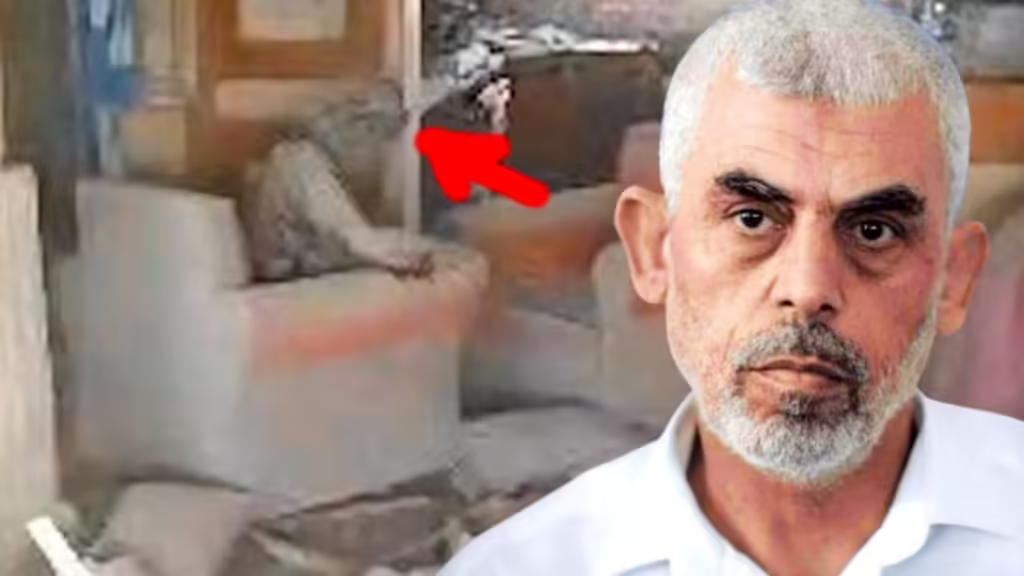Yahya Sinwar, a prominent leader of Hamas, has been in the headlines following reports of his possible death. As one of the key figures in Hamas, his death, if confirmed, would have significant implications not only for the Gaza Strip but for the entire region. Let’s dive into what we know, what his death could mean for the conflict, and why it matters to global geopolitics.
Table of Contents:
- Who is Yahya Sinwar?
- Reports of Yahya Sinwar’s Death
- Why Was Yahya Sinwar Important?
- Impact on Hamas and Gaza
- What Could Happen Next?
- FAQs
Who is Yahya Sinwar?
Yahya Sinwar is a top political and military leader of Hamas, the Palestinian militant group that controls the Gaza Strip. Sinwar’s rise to prominence began during his time in Israeli prison, where he was jailed for several crimes, including his involvement in the killing of Israeli soldiers. Released in a prisoner swap in 2011, Sinwar quickly ascended the ranks within Hamas and became the de facto leader of the Gaza Strip in 2017.
He has long been considered one of Hamas’ most hardline leaders, advocating for aggressive resistance against Israel. Under his leadership, Hamas has continued its policy of armed struggle, which has led to multiple conflicts with Israel.
Reports of Yahya Sinwar’s Death
News reports surfaced in October 2024 suggesting that Yahya Sinwar might have been killed in an Israeli airstrike during the ongoing conflict between Hamas and Israel. However, as of now, these reports remain unconfirmed. Israel has not provided concrete evidence of Sinwar’s death, though Israeli military officials have stated that he was a target in recent operations
AS USA
.
Hamas, on the other hand, has not officially commented on Sinwar’s fate, leading to widespread speculation. The uncertainty surrounding his status has caused a stir in both the Israeli and Palestinian media, with experts debating the potential consequences of his possible death.
Why Was Yahya Sinwar Important?
Sinwar’s role within Hamas cannot be overstated. As the leader of the group in Gaza, he held both political and military power, making him one of the most influential figures in the region. His leadership style was marked by his willingness to use force, and he was seen as a symbol of resistance by many Palestinians.
His death, if confirmed, would be a significant blow to Hamas, particularly given the group’s current struggles amid increased Israeli military action. Sinwar’s leadership brought a strategic and militaristic focus to Hamas, and without him, there could be a power vacuum that led to internal struggles within the group.
Key reasons why Sinwar’s leadership was critical:
- Unified Gaza under Hamas control: He maintained order and enforced strict policies.
- Coordinated armed resistance against Israel: Sinwar played a major role in planning and executing attacks.
- Bridged political-military leadership gaps within Hamas: Being both a political and military leader made him irreplaceable.
Impact on Hamas and Gaza
If Sinwar is indeed dead, Hamas could face internal power struggles. The organization, while strong, has multiple factions, and Sinwar’s leadership helped maintain a fragile balance. His death might lead to:
A leadership struggle:
Potential successors might emerge, but internal divisions could weaken Hamas temporarily.
Increased violence: Without Sinwar’s centralized command, more aggressive factions within Hamas may act independently, leading to increased attacks.
Loss of coordination: Sinwar was a master at coordinating military responses. His absence could reduce Hamas’ effectiveness in organizing attacks or responding to Israeli actions.
For the people of Gaza, Sinwar’s death could bring about more instability. Hamas might increase retaliatory actions in response to his death, leading to more civilian casualties and further escalation of violence with Israel.
What Could Happen Next?
The immediate aftermath of Sinwar’s death is likely to lead to a new wave of violence in the conflict between Israel and Hamas. Hamas could retaliate aggressively, leading to a prolonged escalation in the Gaza Strip.
Additionally, Hamas’ leadership would need to regroup. Several senior leaders, like Ismail Haniyeh, are potential candidates to fill Sinwar’s shoes. However, no leader has the same blend of political and military authority that Sinwar commanded, making his absence difficult to replace.
On the Israeli side, Sinwar’s death would be seen as a major victory. Israel has long sought to weaken Hamas by targeting its leadership. However, eliminating one leader often leads to new, more radical leaders stepping in, which could continue the cycle of violence.
FAQs
1. Who was Yahya Sinwar?
Yahya Sinwar was the political and military leader of Hamas in Gaza, known for his hardline stance against Israel and his role in coordinating armed resistance.
2. Is Yahya Sinwar’s death confirmed?
As of now, his death has not been confirmed, though reports from Israeli military officials suggest that he might have been killed in an airstrike in October 2024.
3. How will Sinwar’s death affect Hamas?
Sinwar’s death would likely lead to internal power struggles within Hamas, weakening its organizational structure temporarily. However, it may also provoke more violence in the short term as factions vie for control.
4. What does this mean for the Gaza-Israel conflict?
Sinwar’s death could lead to an escalation in violence, with Hamas likely to retaliate against Israel. The power vacuum could also make it difficult for Hamas to maintain coordinated attacks, potentially reducing their effectiveness in the immediate aftermath.
5. Who could replace Yahya Sinwar?
Possible successors include senior Hamas figures like Ismail Haniyeh, though no leader has the same blend of political and military influence that Sinwar wielded.
Conclusion
Yahya Sinwar’s possible death represents a pivotal moment in the Gaza-Israel conflict. His leadership shaped Hamas’ strategy and actions in recent years, and if he is gone, the group will face significant challenges in leadership and military coordination. Only time will tell whether this leads to a period of instability or increased violence.
For now, the world watches and waits for confirmation and the consequences that will follow. The death of such a prominent figure will not pass quietly, and both Gaza and Israel are bracing for what comes next.



